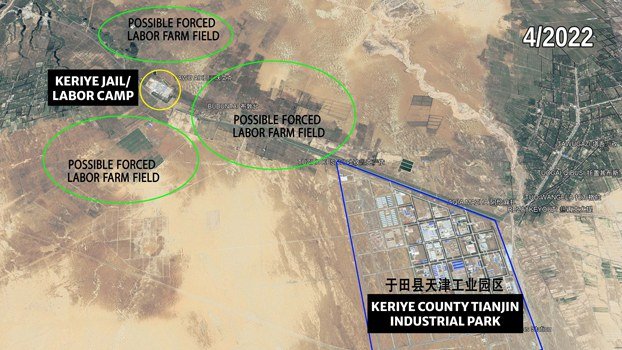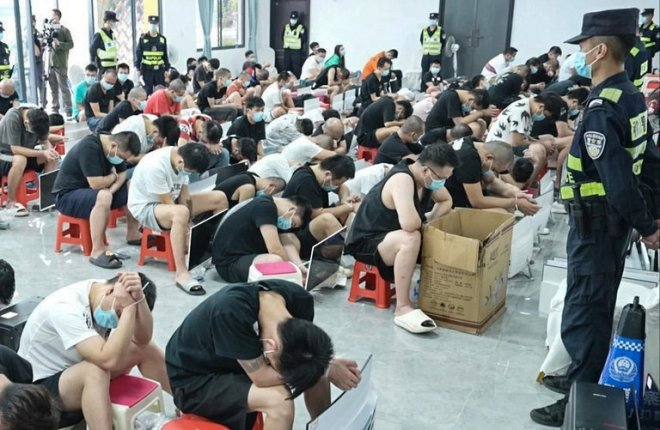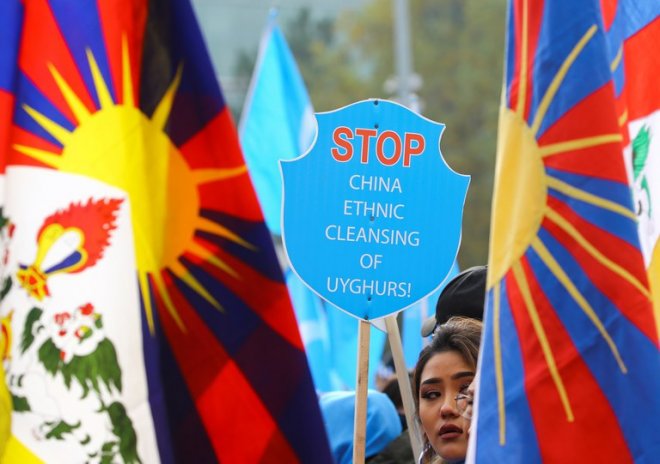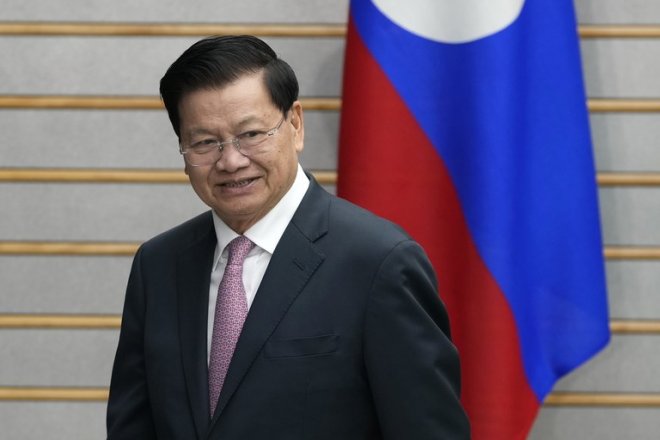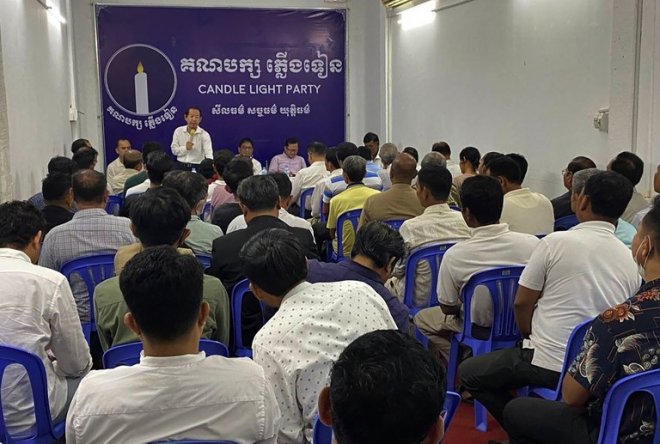Papua New Guinea hopes to finalize membership in China-led bank
Papua New Guinea, the most populous Pacific island country, is hoping to join the Asian Infrastructure Investment Bank – China’s answer to U.S.-dominated institutions such as the World Bank and International Monetary Fund – in the near future, according to its Minister for Treasury Ian Ling-Stuckey.
In an apparently related development, Prime Minister James Marape is planning to attend the first Papua New Guinea-Asia Investment Conference in Hong Kong on Oct. 16, according to a statement from his office. It hasn’t announced if Marape will also visit Beijing.
“The focus of my work is to secure additional cheaper funding to PNG,” Ling-Stuckey said in a statement on the weekend that announced he is preparing for a trip to China to finalize membership of the infrastructure bank. “Chinese interest rates are currently below those in [the] U.S. and Australia and even from many of our multilateral partners.”
China established the AIIB in 2015 to meet what it said was Asia’s vast need for infrastructure financing.
More than 100 countries have joined, including wealthy nations such as Australia and Germany along with developing states in Africa, the Middle East, Asia and the Pacific. Papua New Guinea was approved as a prospective member in May 2018.
The bank, however, has been criticized for allegedly serving the Chinese government’s interests to the detriment of other member nations. In June, its director general of communications, Canadian national Bob Pickard, said he had resigned from the lender because of its “toxic” culture.
“The Bank is dominated by Communist Party members and also has one of the most toxic cultures imaginable. I don’t believe that my country’s interests are served by its AIIB membership,” Pickard said on X, formerly known as Twitter.
The Beijing-headquartered lender in July said an internal review had found no evidence that supported Pickard’s allegations.
Ling-Stuckey said he met with China’s ambassador to Papua New Guinea, Zeng Fanhua, and other embassy officials last week to finalize details of a visit to China.
“I look forward to meetings with China’s Export Credit Bank along with the Asian Infrastructure Investment Bank,” he said.
“China is our second largest trading partner,” Ling-Stuckey said. “Personally, three of my grandparents come from China, and it will be good to visit again after a gap of nearly two decades. We are putting in the work to make this visit as productive as possible.”
Beijing’s influence with economically-lagging Pacific island nations has increased over the past two decades through a combination of trade, infrastructure and aid as it seeks to isolate Taiwan diplomatically, gain allies in international institutions and advance its economic and security interests.
U.S. interest in the Pacific was galvanized in early 2022 after Beijing and the Solomon Islands signed a security pact that the U.S. and allies such as Australia fear could lead to a Chinese military presence in a region they consider crucial to their defense and security.
President Joe Biden met Pacific island leaders including Marape last month in Washington, the second U.S.-Pacific islands summit in a year, highlighting the intensifying superpower rivalry in the region.
Marape, in an Oct. 5 statement, said the Papua New Guinea-Asia Investment Conference in Hong Kong later this month aims to promote investment and trade for Papua New Guinea’s economy and create more jobs.
Papua New Guinea, home to more than nine million people, is endowed with mineral and natural resources but grapples with challenges such as corruption, lack of roads and basic healthcare in many regions as well as frequent tribal violence.
“We will be looking at bringing in investors and businesses that will help realize the government’s strategy to go into downstream processing, grow the economy, and create jobs for our people,” Marape said.
BenarNews is an RFA-affiliated online news organization.
[圖擷取自網路,如有疑問請私訊]
In an apparently related development, Prime Minister James Marape is planning to attend the first Papua New Guinea-Asia Investment Conference in Hong Kong on Oct. 16, according to a statement from his office. It hasn’t announced if Marape will also visit Beijing.
“The focus of my work is to secure additional cheaper funding to PNG,” Ling-Stuckey said in a statement on the weekend that announced he is preparing for a trip to China to finalize membership of the infrastructure bank. “Chinese interest rates are currently below those in [the] U.S. and Australia and even from many of our multilateral partners.”
China established the AIIB in 2015 to meet what it said was Asia’s vast need for infrastructure financing.
More than 100 countries have joined, including wealthy nations such as Australia and Germany along with developing states in Africa, the Middle East, Asia and the Pacific. Papua New Guinea was approved as a prospective member in May 2018.
The bank, however, has been criticized for allegedly serving the Chinese government’s interests to the detriment of other member nations. In June, its director general of communications, Canadian national Bob Pickard, said he had resigned from the lender because of its “toxic” culture.
“The Bank is dominated by Communist Party members and also has one of the most toxic cultures imaginable. I don’t believe that my country’s interests are served by its AIIB membership,” Pickard said on X, formerly known as Twitter.
The Beijing-headquartered lender in July said an internal review had found no evidence that supported Pickard’s allegations.
Ling-Stuckey said he met with China’s ambassador to Papua New Guinea, Zeng Fanhua, and other embassy officials last week to finalize details of a visit to China.
“I look forward to meetings with China’s Export Credit Bank along with the Asian Infrastructure Investment Bank,” he said.
“China is our second largest trading partner,” Ling-Stuckey said. “Personally, three of my grandparents come from China, and it will be good to visit again after a gap of nearly two decades. We are putting in the work to make this visit as productive as possible.”
Beijing’s influence with economically-lagging Pacific island nations has increased over the past two decades through a combination of trade, infrastructure and aid as it seeks to isolate Taiwan diplomatically, gain allies in international institutions and advance its economic and security interests.
U.S. interest in the Pacific was galvanized in early 2022 after Beijing and the Solomon Islands signed a security pact that the U.S. and allies such as Australia fear could lead to a Chinese military presence in a region they consider crucial to their defense and security.
President Joe Biden met Pacific island leaders including Marape last month in Washington, the second U.S.-Pacific islands summit in a year, highlighting the intensifying superpower rivalry in the region.
Marape, in an Oct. 5 statement, said the Papua New Guinea-Asia Investment Conference in Hong Kong later this month aims to promote investment and trade for Papua New Guinea’s economy and create more jobs.
Papua New Guinea, home to more than nine million people, is endowed with mineral and natural resources but grapples with challenges such as corruption, lack of roads and basic healthcare in many regions as well as frequent tribal violence.
“We will be looking at bringing in investors and businesses that will help realize the government’s strategy to go into downstream processing, grow the economy, and create jobs for our people,” Marape said.
BenarNews is an RFA-affiliated online news organization.
[圖擷取自網路,如有疑問請私訊]
|
本篇 |
不想錯過? 請追蹤FB專頁! |
| 喜歡這篇嗎?快分享吧! |
相關文章
AsianNewsCast








